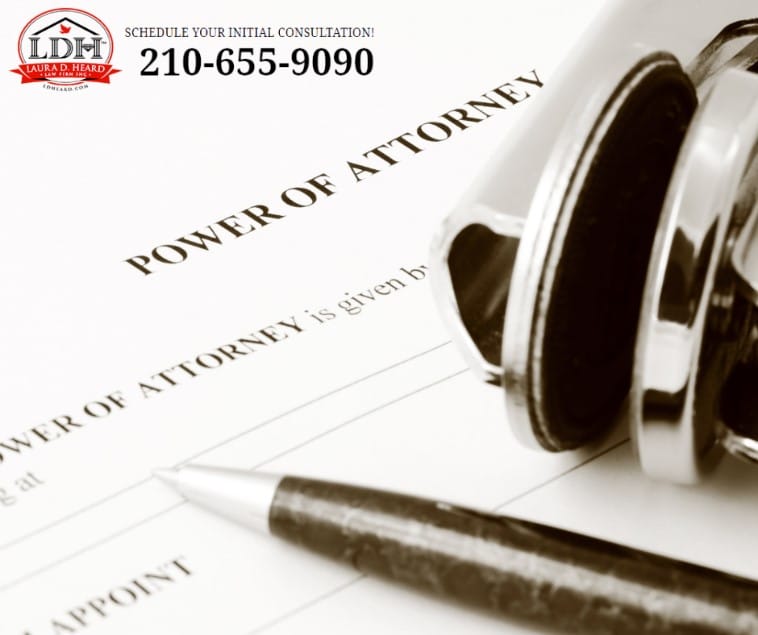What is a Power of Attorney? Many clients come see me without any idea of what a Power of Attorney is or does.
A power of attorney is a legal document that gives another person the legal authority to act on your behalf while you’re still alive. It is only in effect while you’re alive. As soon as you die, it is void. It’s done. It cannot be used after you pass away. There are many types of Powers of Attorney, but none can survive the death of the person who made it. Once a person has passed away, they must have a will or trust to manage their estate at that point. However, your Will has no effect while you are still alive.
Who Can Be Appointed As Agent? The person appointed in a power of attorney is called the agent, and the person who signs a power of attorney that makes someone else their agent is called the principal. The person you appoint as your agent does not have to be an attorney and, in fact, usually is not an actual attorney at law. Usually, the agent is a loved one, such as a child, or a spouse. If the principal does not have a child or a spouse, it’s usually a sibling or somebody they trust such as a dear friend or an accountant or business partner. The Agent is supposed to treat your property with the highest standard of care and only manage your property for your benefit or as you instruct.
Types of Power of Attorney. Some Powers of Attorney control financial decisions and some control medical decisions. One that gives the agent a right to withhold life-saving treatment is called an “Advance Directive.” One that follows an approved form for financial decisions is called a “Statutory” Power of Attorney. We cannot combine medical decisions and financial decisions into one document. The medical power of attorney would authorize an agent to consent or withdraw consent to any medical choices on your behalf. You need two witnesses or a notary, but your witnesses cannot be your healthcare provider or have any stake in your estate. You would probably want to execute your Powers of Attorney at a lawyer’s office because whenever you are in a medical emergency, that is not the time to find out that you didn’t do it properly. There’s the special power of attorney and this special or limited power of attorney. The powers with this are limited to only a specific problem or area. Like if the principal wants to sell a house, but they’re not able to be there physically to sign the papers, they might have a power of attorney limited to the sale of that particular house only. Another example would be if my husband and I leave to go on a trip and we’re out of the country. I would probably do a special power of attorney so my mom can be the agent and make choices for our child while we are away. It starts and stops at specific times.
Is Everyone Legally Supposed to Accept an Agent’s Right to Use a Power of Attorney? Suppose an Agent who had a power of attorney went to try to use it at the Principal’s bank. Their bank said, “Unfortunately, we can’t accept this.” In this case, it was because the Bank investigated the agent and his history, and he had some financial issues. He had filed for bankruptcy in the past or possibly had some credit issues. No one is legally required to accept a financial power of attorney if they have a good faith reason to reject it. They can reject even a perfectly drafted power of attorney. Usually the institution will accept the Power of Attorney, but sometimes they don’t. However, when it comes to a medical power of attorney, that is different. The federal law says a medical provider MUST honor a medical power of attorney. The patient has a right to designate an agent who will carry out the patient’s wishes regarding medical consent.
In order to use a Medical Power of Attorney as the Agent, you need to have a doctor’s note or authorization from two physicians that declares this person is incapacitated. The medical power of attorney only takes effect if the Principal is unable to make their own decisions, and it may take some time to get that statement from the doctors.
Financial Powers of Attorney may be set up to take effect only when a doctor has declared the person incapacitated, or the financial power of attorney can be written to take effect immediately even though the Principal is able to communicate. I recommend that you have it be effective at once and not wait until you’re declared disabled or incapacitated, because that gives you to opportunity to see if you can really trust the agent while you still are aware of what they are doing. I’ve heard stories where a person has a financial power of attorney in effect immediately, and they call and say, “My daughter took all my money.” So, you want to make sure the person you appoint as agent on any power of attorney is someone that you really trust completely. Why would you give someone so much power over your property? In cases of Alzheimer’s or dementia or coma, you may need someone to manage your affairs. If you don’t have a power of attorney, the only other alternative is a guardianship. Guardians are subject to audit and much more closely watched than an Agent with a power of attorney, but guardianships are very expensive and time-consuming to put in place and they require annual reporting to the court and a bond.
Powers of Attorney are useful tools to save your loved ones time and money and allow them to take care of you, but they are also quite dangerous if given to someone who is not trustworthy. Although an Agent who takes your money can be prosecuted criminally and the powers of attorney can be revoked, it may be too late to get your money back.







